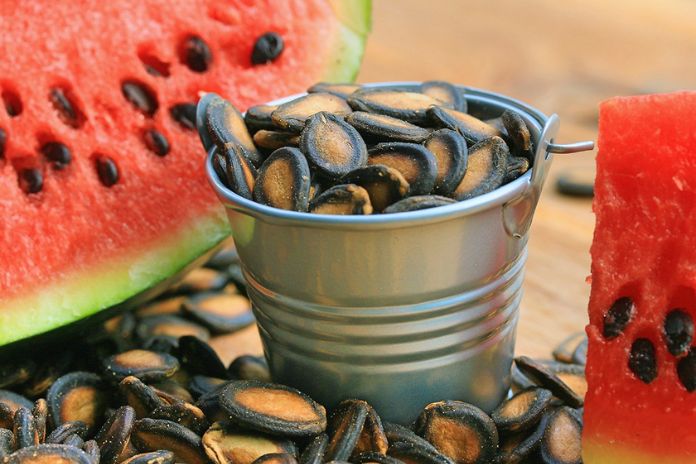Watermelon is a refreshing fruit to eat with any meal of the day and an excellent source of hydration and vitamins during a busy routine.
But is watermelon fattening? Check out the benefits and nutritional values of the fruit below.
Watermelon: Nutritional Values
Watermelon is a fruit that offers variety in its categories, such as striped watermelon and seedless watermelon. It is one of the healthy foods rich in vitamins that can be consumed alone or in the preparation of recipes.
In addition to using the pulp, we can use other parts of the fruit, such as the peel for skin applications, the white feature for the production of sweets such as jellies and even the seed for the preparation of flour for bread.
Every 100 g of watermelon pulp contains, on average:
- Energy: 33 kcal and 136 kJ
- Humidity: from 90.7% to 92%
- Carbohydrate: from 6.4 to 8.1 g
- Protein: 0.9 g
- Dietary Fiber: 0.1 g
- Potassium: from 104 to 116 mg
- Phosphorus: 12 mg
- Magnesium: 10 mg
- Calcium: 8 mg
- Vitamin A: from 365.10 to 590 IU
- Vitamin B1: 0.08 mg
- Vitamin B2: 0.04 mg
- Vitamin B5: 0.20 mg
Vitamin C: from 6.1 to 9.5 mg
Is Watermelon Fattening Or Thinning Anyway?
It’s a myth that watermelon is fattening! According to , sports nutritionist and technician responsible for Growth Supplements, no food can be classified as “fattening or slimming” precisely because it provides essential nutrients and calories for the functioning of our body.
So is overeating watermelon fattening? It depends. Still, according to the nutritionist, you will only gain weight if you eat more calories than you burn, so you need to be aware of the pace of your activities and how many calories you eat during the day to maintain a balanced diet.
We remember that it is essential to follow up with a health professional, assess current needs, and analyze other factors that can lead to weight gain, such as genetics and a sedentary lifestyle.
Can Watermelon Help You Lose Weight?
Because it contains low calories, watermelon can be an ally in a diet, mainly because its fibres act as regulators of intestinal transit, helping to eliminate toxins and reducing cholesterol.
The vitamins and minerals in the fruit help increase red blood cells, offering more willingness to carry out activities.
Always remember that you need to consume fewer calories than you spend to lose weight. Therefore, the schedule, such as the consumption of carbohydrate foods at night, does not interfere with the diet once you are within the daily caloric needs.
Watermelon Is Good For What?
As we have seen, watermelon has a high nutritional value; therefore, including it in the daily menu makes our bodies work better.
But what are the benefits of watermelon? Check out some actions below, according to a nutritionist.
- Acts as an antioxidant action.
- Hydrates, due to its high concentration of water.
- Prevents anticancer action, such as colon, prostate and lung cancer.
- Help properly function the immune system with the body’s defense.
- Assists in the prevention of chronic diseases, such as cardiovascular.
- Helps in the elimination of uric acid.
- Acts as an anti-inflammatory in treating skin, such as erysipelas.
- Acts with blood pressure control.
- Helps in eye health.
- Assists in treating stomach acidity and inflammation of the urinary tract.
- Acts in a diuretic way with the elimination of residues.
For practitioners of more intense physical activities, post-workout watermelon is a great option to replenish Potassium, as it helps muscle recovery, hydrating, and refreshment right after the move.
Also Read: Watermelon Peels: 3 Simple Recipes To Avoid Wasting Them

